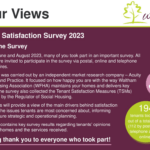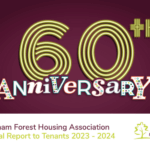
After grenfell everything has changed
July 14, 2017 | News Share
The fire at Grenfell Tower has been a wake-up call – not just for housing providers, but across the whole country.
It has brought up so much: what we mean by vulnerable people and listening to tenants; the perception of social housing tenants as second-class citizens; the language used around migrants, immigration and welfare benefits; the onslaught of negativity, verging on incitement to hatred, in so much of the media.
I grew up in the east end of London, where I lived in social housing with my family in the late 1960s and 1970s.
My father was born in Pakistan and came here, like 1,000s of others in the late 1950s, to staff public services. As a family, there were times when we had to live on welfare benefits – which my parents hated.
But although we were sometimes treated as second class citizens, I believe that people face far worse prejudice today.
Along with cuts to essential public services, a social housing crisis, increasing levels of homelessness and poverty, and rising Islamaphobia and hate crime, the most vulnerable people in our society have been demonised.
Migrants, people receiving welfare benefits and social housing tenants are poisonously portrayed as scroungers, skivers and cheats, who deserve nothing: no care, no decent income, no decent place to live. People who are vulnerable or poor, or both, are vilified. In my lifetime, I can’t remember a stronger sense of them and us.
Grenfell is challenging us to revisit what it means to be a social housing provider.
We have been committed to providing great homes and services for our tenants, while under increasing financial pressure. But, in future, we may need to do more.
At WFHA, we had already planned to revisit our values and vision in July. After Grenfell, it feels essential and a poignant time to think about how we do things, not just what we do to achieve which outputs.
We need to remember that the assets we manage are people’s homes. They must be safe and decent – somewhere we would be happy to live ourselves. We need to develop our offer to tenants and make sure that communication is even more meaningful.
In the wider world, we need to raise the profile of what we do as sector and the valuable role we have in society. But we also have to be drivers for change around a hate-filled narrative that damages the people we serve.
We cannot simply be inward-looking about this tragedy. We must not be defensive. That time has gone. We need to stand up.
Shahron Shah
Chief Executive



